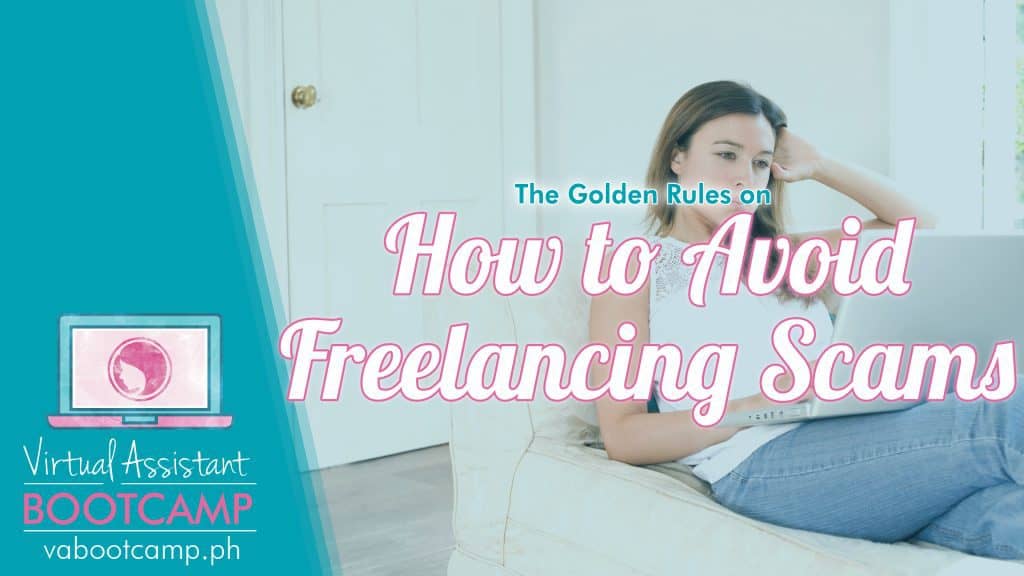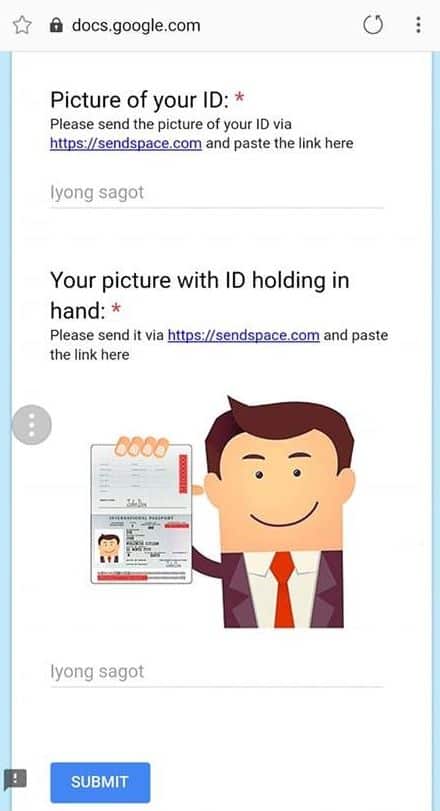Menu

After sending gazillion proposals, someone reached out with a job offer. Finally!
Giddy with excitement, you open the email and carefully read the instructions.
As you go through each line, however, your eyebrows couldn't help but twitch. Your enthusiasm dies down as suspicion takes over.
“Is this legit?” you ask.
As awesome as the freelancing world is, it's not immune from the bad guys.
Getting scammed is still one of the biggest horror stories among freelancers. It’s sad that scammers exist online, but it’s even sadder when we hear of new freelancers falling prey.
But even though the online world isn’t perfect, this shouldn't stop us from giving it a try. There are still lots of legit clients you can work with.
Just be aware that scammers exist and learn how to spot their shams, so you could stay away. This is exactly what I’m going to show you in this blog post.
1. Never pay for anything to get a job.
If a task requires you to pay for a security deposit, training bond, or ANY kind of fees before getting hired, stay away! DO NOT even think of sending payment, just to test if they’re telling the truth.
No legit client will ever need payment from their freelancers. This method is 99.9% a scam!
2. Never install any suspicious .exe files.
When potential clients require that you install .exe files (or click on links that automatically download something), stop and ask what it’s for.
It’s very rare for clients to ask you to install something, but when they do, it’s to install popular tools such as Basecamp, Asana, DocuSign, etc.
Politely ask what the tool is for and say that you prefer downloading directly from its official website. Legit clients are usually okay with this.
Scammers will only give you vague reasons and will get angry when you push back. Stay away!
3. Never upload any IDs, passport, utility bills, or anything that has sensitive information.
This is how identity thieves operate, so don’t let them! They’ve even gotten creative, linking to a Google Doc that looks like this:

NEVER upload any government IDs without blurring out sensitive information.
Looks decent, right? But DO NOT ever send them ANY id.
Your online profile should be enough proof of your identity and skills. No legit client will ever ask for anything more.
4. Never share your online banking or PayPal log-ins.
To get paid with direct clients, I recommend using PayPal because you only need to give clients your email address to receive payment.
Otherwise, be VERY careful that you don’t accidentally share your online banking username and password. Stay away from jobs that involve logging in to some payment gateway and receiving/transferring money to other accounts.
Also, be very mindful when you get asked to create accounts in websites you’ve never heard of. This could be a way of hackers recording your passwords and personal information.
Always check the URL and if it feels suspicious, then stay away! Better be safe than sorry.
5. Never do any sample work for free.
I’ve heard several stories wherein freelancers do sample works for potential clients, only to be told that their work wasn’t good (even though the clients could still use the output).
If they want proof of your skills, your portfolio items should suffice. If they really want sample works specific to their industry, legit clients will hire you for a fixed-price job.
If they like you, that’s when they’ll award you a long-term contract.
If ever someone insists that you work for free, just reply:
“I would love to help you with *task description*, but there is a market value for my time and services. Therefore, I will not start any task without a customary contract in place.
Please review my profile for my rates and feel free to ask me any questions you might have. Have a great day!”
6. When receiving payments, receive them with PayPal
A lot of fishy people online will insist that they send you money through Western Union, MoneyGram, or some unknown service. They even send fake screenshots and proofs of payments!
With PayPal, you can easily verify if a client has sent you money (or not). As long as you make sure to log-in to your PayPal.com account (and not a link someone else tells you to click) - you can see all your transactions and their statuses real-time. If you don't see a payment there, the client didn't send it yet.
As always, Google is every freelancer’s best friend. When still unsure, do a search for the company name.
[] Do they have a company website? (not free sites such as Wix or WordPress.com)
[] Do they have an About Me page that talks about what they do?
[] Does their company have real reviews from their customers?
[] Is the client or the recruiting person on LinkedIn?
[] Is he/she using a personal or business email address?
If they fail in one item above, be extra careful. You might be dealing with either a very new company or one that doesn’t really exist.
Go ahead and post about them in our Scam/Legit thread so that other freelancers get alerted.
Just like when you’re walking on the streets, if you don't feel safe or think that something is off, it’s most probably best to walk fast and get out of the area.
If you feel that the client’s offer is suspicious, then don’t take chances. Simply ignore them and don’t respond.
Remember, these bad guys WILL innovate their schemes and get creative, but their goals are the same.
As long as you keep these golden rules in mind, you should never worry about getting scammed as a freelancer.
Every freelancer will encounter scammers, so don’t get disappointed when you do - just walk away and move on to finding the right clients. Aja!